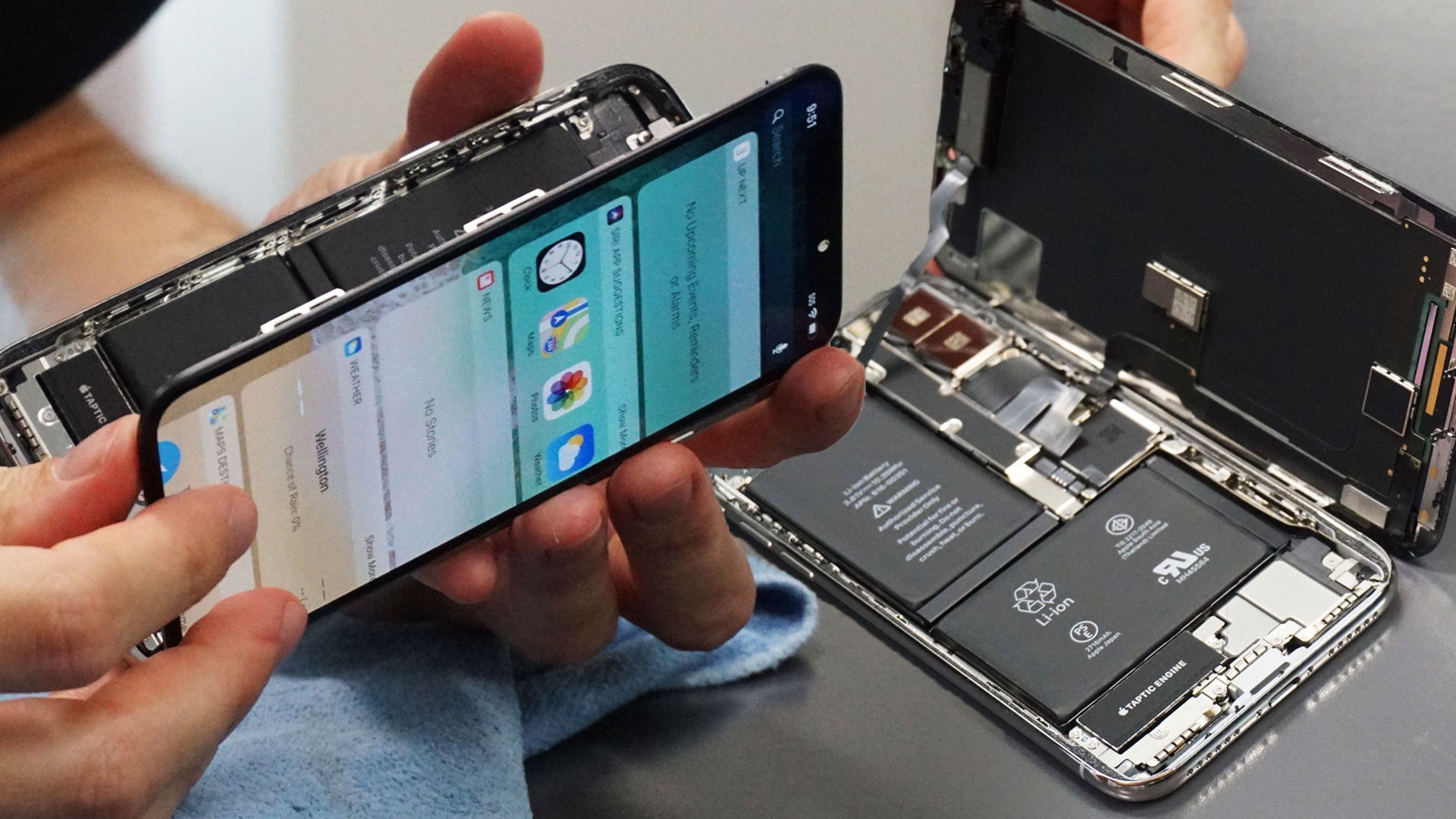Image: Jason Koebler
A California state lawmaker says she hopes to make Apple explain specifically why it has opposed and lobbied against legislation that would make it easier for you to repair your iPhone and other electronics.Last week, California assemblymember Susan Talamantes-Eggman announced that she plans to introduce right to repair legislation in the state, which would require companies like Apple, Microsoft, John Deere, and Samsung to sell replacement parts and repair tools, make repair guides available to the public, and would require companies to make diagnostic software available to independent shops.Public records show that Apple has lobbied against right to repair legislation in New York, and my previous reporting has shown that Apple has privately asked lawmakers to kill legislation in places like Nebraska. To this point, the company has largely used its membership in trade organizations such as CompTIA and the Consumer Technology Association to publicly oppose the bill. But with the right to repair debate coming to Apple’s home state, Talamantes-Eggman says she expects the company to show up to hearings about the bill.“Apple is a very important company in the state of California, and one I have a huge amount of respect for. But the onus is on them to explain why we can’t repair our own things and what damage or danger it causes them,” Talamantes-Eggman told me in a phone interview. Talamantes-Eggman told me that the bill she plans to introduce will apply to both consumer electronics as well as agricultural equipment such as tractors. Broadly speaking, the electronics industry has decided to go with an “authorized repair” model in which companies pay the original device manufacturer to become authorized to fix devices. Under Apple’s model, for instance, repair shops are only allowed to attempt certain basic repairs; for example, if an iPad’s backlight blows out, authorized repair shops are required by Apple to mail the device back to the company. Meanwhile, hundreds of independent repair shops fix these devices without Apple authorization.The industry says that under this model, companies are protecting their intellectual property, are protecting consumers’ safety, and are protecting device security, though no company has put forward a coherent narrative or argument as to why these bills would result in less secure devices or the divulgence of trade secrets.
Broadly speaking, the electronics industry has decided to go with an “authorized repair” model in which companies pay the original device manufacturer to become authorized to fix devices. Under Apple’s model, for instance, repair shops are only allowed to attempt certain basic repairs; for example, if an iPad’s backlight blows out, authorized repair shops are required by Apple to mail the device back to the company. Meanwhile, hundreds of independent repair shops fix these devices without Apple authorization.The industry says that under this model, companies are protecting their intellectual property, are protecting consumers’ safety, and are protecting device security, though no company has put forward a coherent narrative or argument as to why these bills would result in less secure devices or the divulgence of trade secrets.
Advertisement

Advertisement
“It’s their business model—they sell you something and they fix it. It’s not a trademark or trade secret issue,” Talamantes-Eggman said. “I’ve grown increasingly frustrated that I have to pay a lot of money for my phone and iPad and my wife’s iPad and then have to pay Apple to fix it. Do I own the phone, or does Apple own the phone?”Talamantes-Eggman says she realizes that Apple is politically powerful in the state, but said that because she’s an assemblymember from Stockton and not Silicon Valley, she has to represent people who are intent on starting small businesses rather than large companies. Apple did not immediately respond to a request for comment.“We talk a lot about standing up for the everyday person, and sometimes you have to stand up to big corporations in order to stand up for the everyday person,” Talamantes-Eggman said. “We know repair creates jobs and living wage jobs, and I’m very invested in how we dispose of our electronic devices. It makes sense to go up the chain in order to be able to repair and save more devices.”"Do I own the phone, or does Apple own the phone?"
